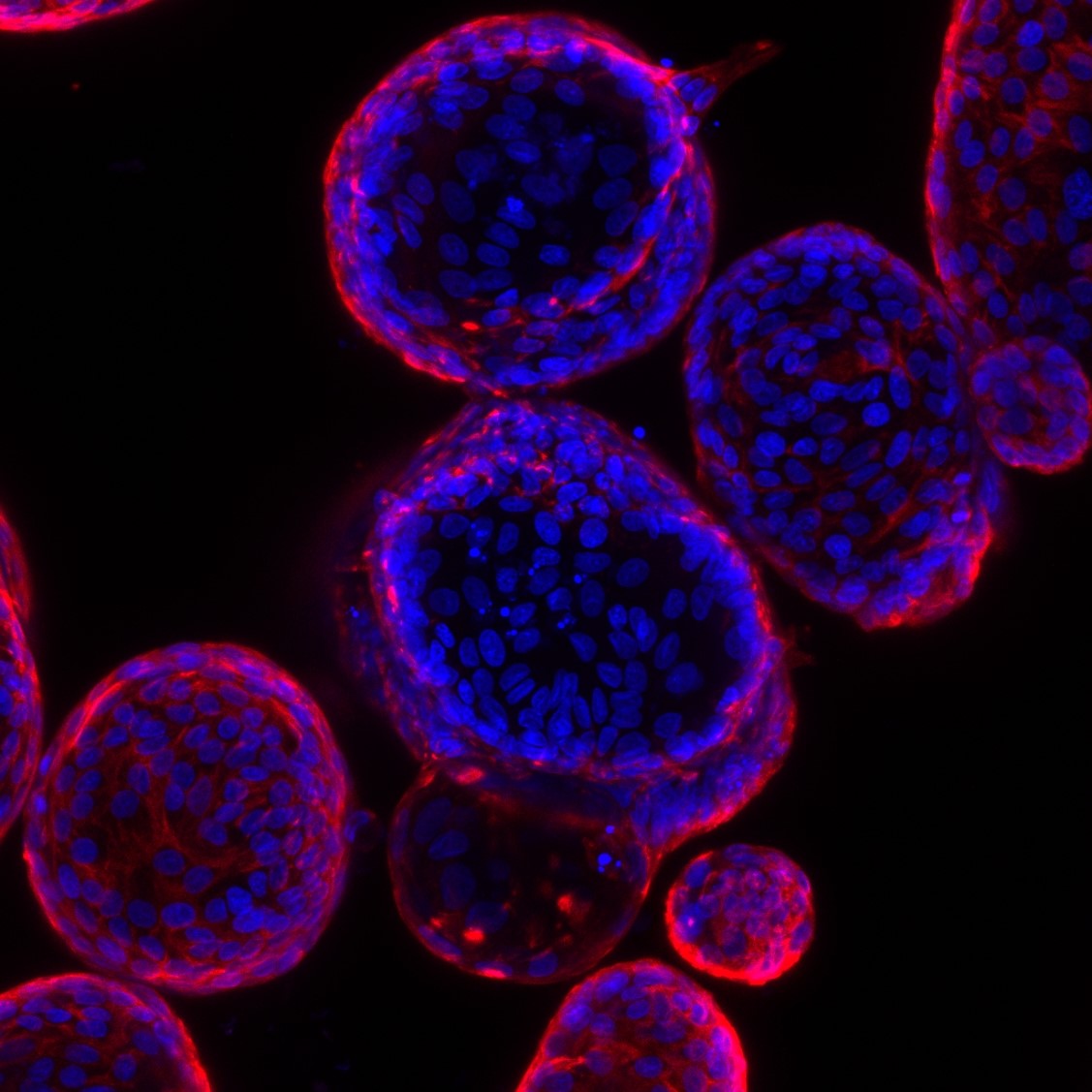Project duration: 18 months
Accelerate partner: Cardiff University and Cellesce

Project overview:
Familial Adenomatous Polyposis and MUTYH-Associated Polyposis (FAP and MAP) are inherited syndromes that predispose patients to adenomatous polyps and a high risk of colorectal cancer.
Trials of therapeutic agents have so far been largely ineffective, with standard treatment is particularly invasive i.e. a colectomy followed by regular, upper gastrointestinal surveys of the duodenum.
This project responds to the need for a robust platform to transform drug screening and enable a targeted therapeutic approach. Organoids are 3D, multi-cellular clusters derived from patient biopsies that recreate the spatial organisation and biology of the original patient’s tissue. They are in effect ‘mini-organs’ providing a 3D model more relevant to human pathology than 2D cell lines.
Accelerate's involvement:
Accelerate is supporting a collaboration between Cardiff University academics (Inherited Tumour Syndrome Research Group) and Cellesce, a Welsh BioTech company, to establish an in vitro, pre-clinical organoid model of FAP and MAP syndromes.
Cellesce has developed a patented bioprocess for the expansion of human derived organoids at scale, aimed at high throughput compound screening in the pharmaceutical industry and for academic research.
Accelerate backing will enable the collaborators to generate new 3D intestinal organoids, derived from FAP and MAP patient tissues, and grow them at scale for commercialisation. This work will underpin the validation of the organoid model as an effective platform for drug screening for both inherited and sporadic intestinal cancers.
This project is part of the Accelerate programme which is part-funded by the European Regional Development fund, through Welsh Government.

